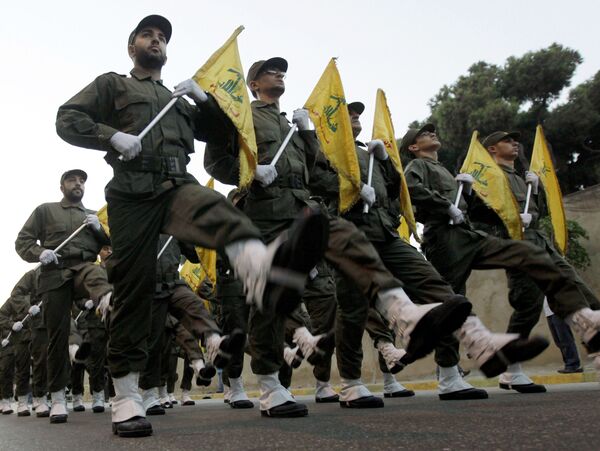Germany’s decision to ban Hezbollah can be perceived, among other things, as an act against Lebanon, Middle East expert and Professor Emeritus Werner Ruf from the University of Kassel said on Thursday.
Also, “this is, to my mind, an example of obedience to Israel and the United States because there is no reason for the ban. On the other hand, it should be noted that Germany maintains normal diplomatic relations with Lebanon, where Hezbollah is represented in the government. So what's the point [of banning the group]?” Ruf, who is also a lecturer at the Rosa Luxemburg Foundation, pointed out.
He added that even though one should not rule out that “donations are sent to certain associations or mosques, which are mainly controlled by Hezbollah”, there is no reason to believe that the organisation poses a security threat to Germany.

On the other hand, Ruf went on to say, the ban “will clearly be seen as an act against Lebanon”, as Hezbollah is represented in the Lebanese government and has great authority – something which should not be overlooked.
According to the expert, Hezbollah was “the only military force that forced Israel to leave Lebanon following the last war [between Beirut and Tel Aviv]”.
“These are completely different perspectives”, he said, adding that when it comes to anyone feeling a threat, “then it is most likely Lebanon [that] feels the menace coming from Israel than vice versa”.
At the same time, Ruf referred to Tel Aviv’s “military superiority”, arguing that Hezbollah is not going to target Israel, given that the Jewish state “has already shown in the last war that it is ready to use almost all types of weapons to destroy Lebanese infrastructure”.
“I do not think that in this situation, Hezbollah would be interested in a new military scenario with Israel”, the expert concluded.
His remarks came after German Interior Ministry spokesman Steve Alter tweeted earlier in the day that Berlin had banned all Hezbollah activities on the country’s territory.
According to him, security forces are currently involved in staging raids against suspected Hezbollah members in a number of German states.
Jewish Group Praises Germany’s ‘Much-Anticipated Move’
American Jewish Committee head David Harris hailed the move as a “welcome, much-anticipated, and significant German decision”, expressing hope that “other European nations will take a close look” at the move and “reach the same conclusion about the true nature of Hezbollah”.
This was preceded by German lawmakers approving a non-binding initiative in December 2019 to call on the government to ban Hezbollah, a Lebanese political party and militant group whose primary basis of support is the country’s Shiite Muslim community.
2006 saw the last major escalation between Israel and Lebanon, with the two countries fighting a 34-day war sparked by a Hezbollah cross-border raid and the kidnapping of two Israeli soldiers. The confrontation claimed the lives of over 1,300 people, including hundreds of Lebanese civilians, and ended in a UN-brokered ceasefire.




